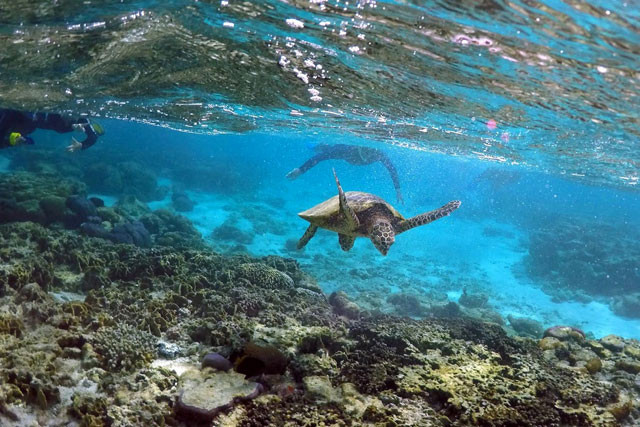Is the Australian Great Barrier Reef dead?
93% of the reef is affected by bleaching, which puts it in danger of extinction

PHOTO: Reuters
The reef has been largely affected by bleaching. According to a report by the ARC Centre of Excellence for Coral Reef Studies, 93 per cent of the reef is affected by bleaching, which puts the reef in danger of extinction.
How a 100-year-old tortoise single-handedly saved his species from extinction
Bleaching occurs when coral are put under extreme stress by changes in conditions such as rising temperature, light, or nutrients. This causes corals to expel algae from their tissues, removing all colour from the coral which then turn white.
According to John Pandolfi, Professor at the ARC Centre at the University of Queenslans, "It is critically important now to bolster the resilience of the reef, and to maximise its natural capacity to recover."
‘Heatwaves, droughts, floods are all adverse effects of climate change’
The effects are serious and maybe permanent. "The reef is no longer as resilient as it once was, and it's struggling to cope with three bleaching events in just 18 years," he said.
Further, according to Kim Cobb, a professor in Georgia Tech’s School of Earth and Atmospheric Sciences: “It’s not too late for the Great Barrier Reef, and people who think that have a really profound misconception about what we know and don’t know about coral resilience.”
This article originally appeared on CNN












1724319076-0/Untitled-design-(5)1724319076-0-208x130.webp)






COMMENTS
Comments are moderated and generally will be posted if they are on-topic and not abusive.
For more information, please see our Comments FAQ